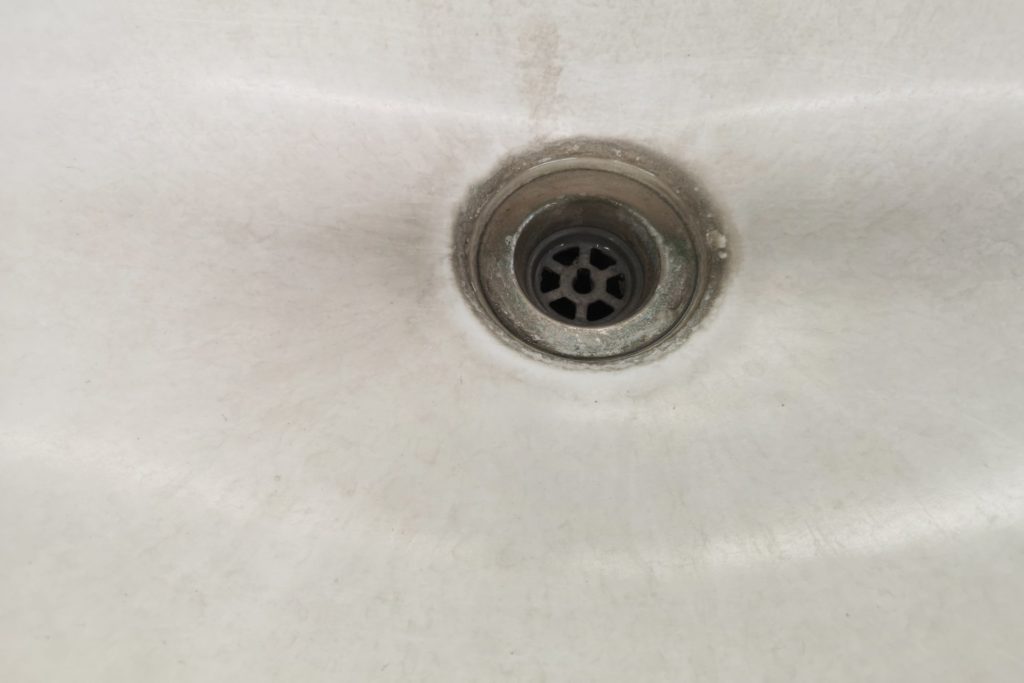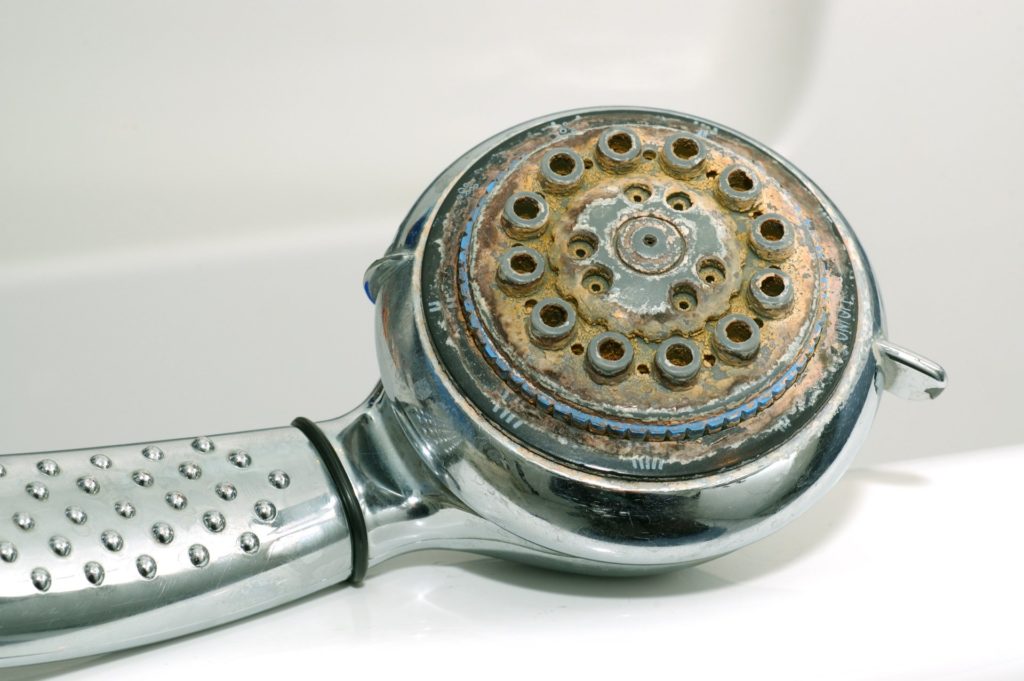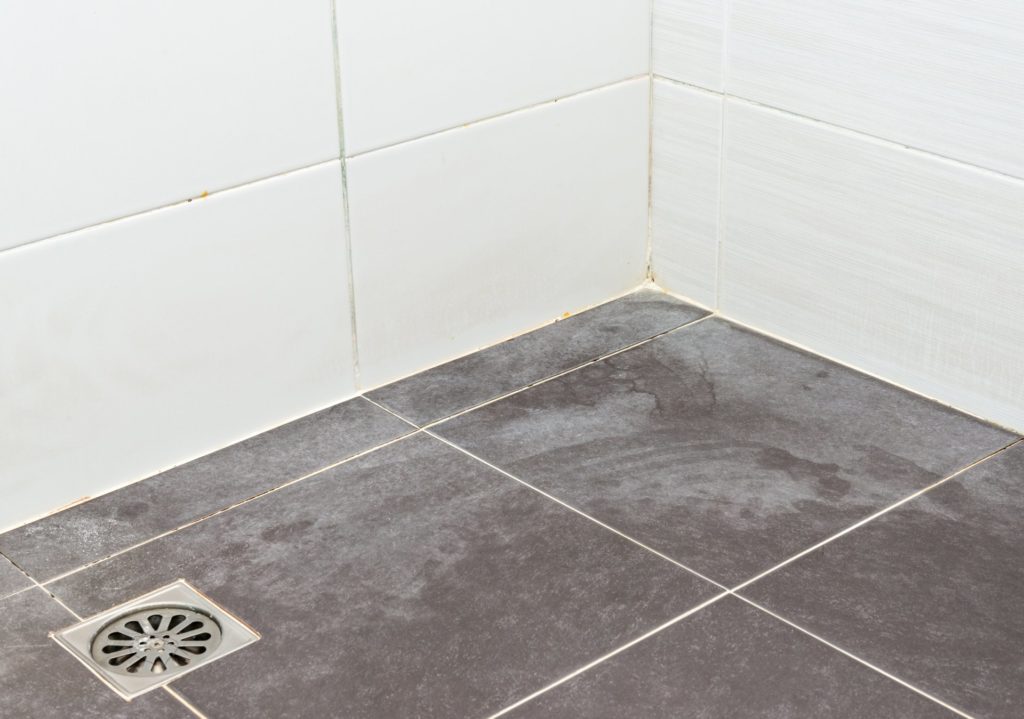A Simple Guide to Removing Hard Water Stains
Posted June 18th, 2018.

Hard water stains can be the bane of our existence. They are hideous, makes the area look dirty (even when it’s not), and are extremely difficult and labor intensive to get rid of. Sometimes it seems as if no matter what we do, those hard water stains are there for life. We scrub repeatedly, and they mock us by staying put, glued onto the surface. We try everything to get them to go away, but alas, they remain.
Well, not anymore. This simple guide to removing hard water stains will lead you down the path of freedom from those pesky stains. All you need is some acidic cleaner, some elbow grease, and a little know-how, and those hard water stains won’t have to haunt you anymore. You can choose one of the pricey cleaners designed specifically for hard water stains if you want, or go with good old-fashioned white vinegar. There isn’t anything out there that is much more acidic than vinegar for a do-it-yourself option. You also may want an old toothbrush, toilet brush, or scrub brush–something to scrub with that you don’t mind getting filthy.
How To Remove Hard Water Stains With Vinegar

This is going to take some elbow grease, maybe a lot depending on the number of hard water stains you have and how old they are. First up, mix equal parts vinegar and water in a spray bottle. You may want to wear gloves for this as well. And don’t worry too much about the nasty vinegar smell. It does dissipate fairly quickly, but you can always add some lemon or some kind of essential oil if you prefer. Spray down the hard water stains with the mixture of vinegar and water and let sit for a brief period.
After the vinegar and water mixture sits for a while, start scrubbing the area. Use the abrasive power of the old toothbrush, toilet brush (for the toilet), or scrub brush. These will help remove the acid-loosened hard water stains. This is where your elbow grease comes into play: really scrub those hard water stains until they disappear. You can use as much vinegar and water mixture as you need to keep loosening the hard water deposits.
If the going is super tough, place some of the vinegar and water mix into a small bowl, then add enough baking soda to make a paste. Use that with your abrasive scrubber of choice and the hard water stain should give. Be careful when doing this, as baking soda and vinegar react. An alternative: sprinkle baking soda directly onto the stain after spraying with the vinegar solution.
You can also clean aerators and shower heads by soaking them in vinegar. Place them in a bowl with some vinegar and let them soak–an old toothbrush may come in handy for more stubborn deposits.
How To Remove Hard Water Stains With Abrasives

This is probably the one with the most elbow grease required, but you can use abrasives such as Comet or baking soda to clean the hard water stains in your building. The abrasive technique will need you to do a lot of scrubbing, especially with the older hard water stains, as abrasives tend to work better on the newer stains. You can also use SOS pads or regular steel wool and water to remove the stains. This is a good step to try first, as it will easily get rid of the newer hard water stains, and then you will know which stains need vinegar to get rid of them.
Removing Hard Water Stains With Hydrochloric Acid Removing Hard Water Stains With Hydrochloric Acid

While you can purchase hard water cleaners with hydrochloric acid in it, this is generally considered a last resort. Hydrochloric acid is a serious chemical, so make sure that the bathroom or kitchen is well ventilated and that you use gloves when handling the product.
This is, however, the less elbow grease option, as in many cases it’s a simple case of spray, soak, and wipe. Rinsing the area after application with water is a must, as hydrochloric acid has many side effects and you do not want it in your food or on your dishes.
How To Prevent Hard Water Stains

Hard water is caused by minerals in the water, such as calcium, silica, and lime. This causes hard water spots which lead to hard water stains if not taken care of quickly. The easiest way to prevent hard water stains is by cleaning more frequently.
Another thing you can do is dry any surface that water touches when you are finished using it, such as the sink. This will prevent the minerals from depositing onto that surface. There are many places which prove more of a challenge when it comes to removing hard water stains, such as the toilet, or dishwasher.
And of course, there is always the option of softening the water to the building by purchasing and installing a water softening system. This will save all your appliances from the wear and tear of hard water, plus save you time and energy so you don’t have to clean up hard water stains.
If a water softening system is out of the question, try adding a filter to prevent many of the minerals from entering your building in the first place. This works great for kitchens, but may not help the toilet situation, which is generally the first place for water stains because of the setting water.
Hard water stains can be extremely aggravating, and no one has time to spend hours cleaning just one spot. This simple guide will aid you in removing those hard water stains, and help you to prevent them. Prevention is a good place to start, as hard water stains can etch glass, ruin crystal, and even become permanent if left too long. And no one wants that to happen.
Need help with hard water stains and other deep cleaning challenges? Fox Cities Janitorial is here to do all the hard work for you. Contact us to explore some options.